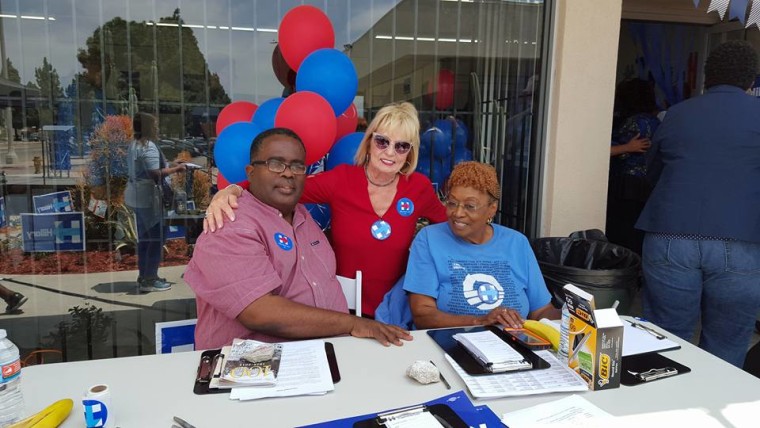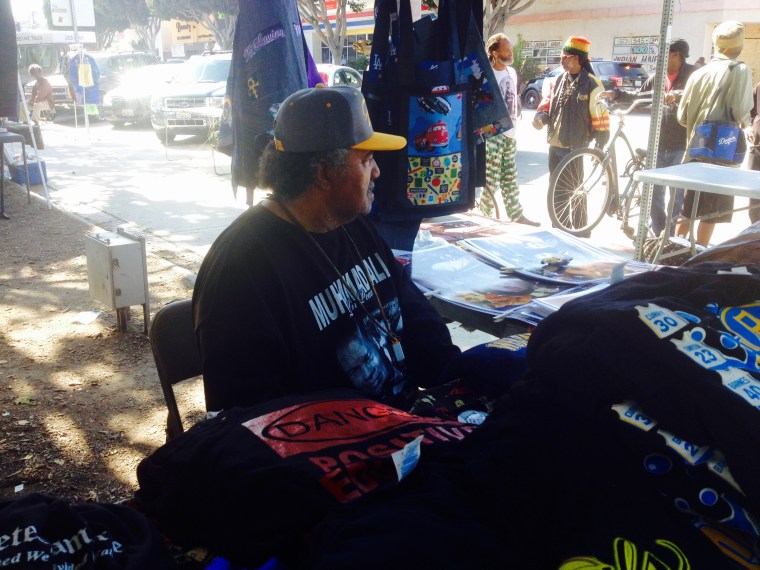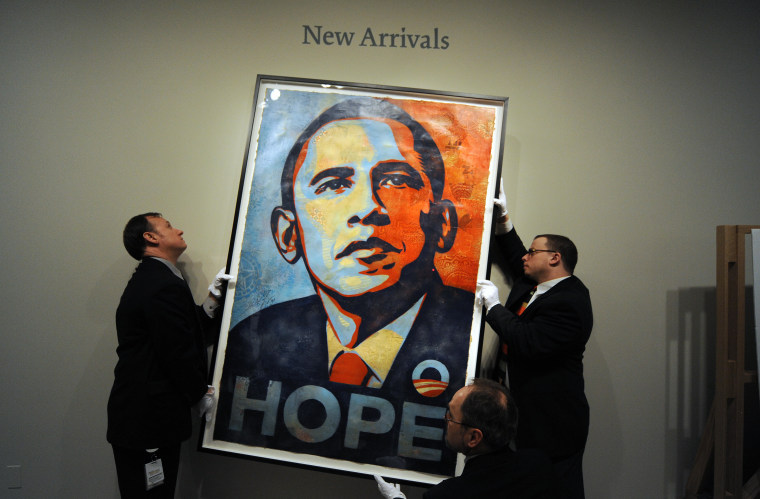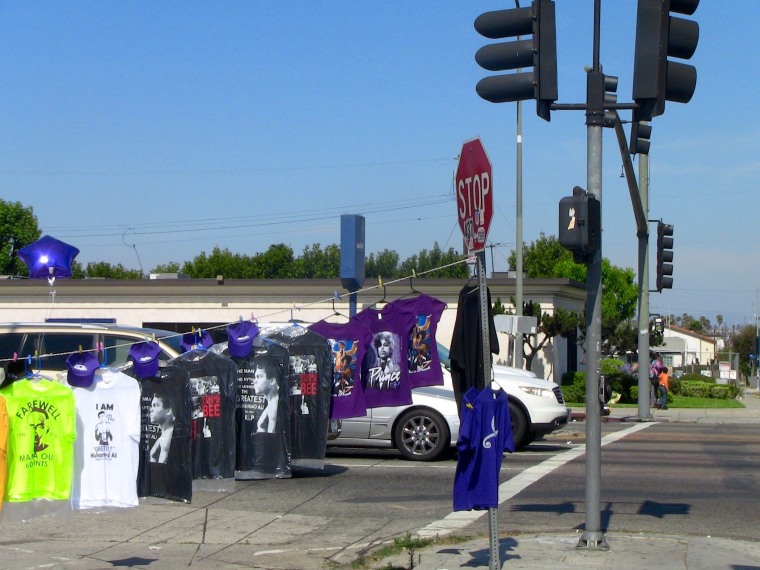When Barack Obama ran for president in 2008 and 2012, community activist Kevin Brown remembers nearly two dozen T-shirts with the candidate’s picture flapping in the breeze along South Los Angeles’ Crenshaw Avenue, a main corridor of the black community.
“Somebody had a shirt that said, ‘This is the first time a black man is running, and he ain’t wanted by the police.’ There was 'Reggae Obama' with rasta colors; one with a big afro on him; Mamas for Obama… We had a sense of ownership,” Brown recalls.
Cut to 2016: It’s the day of the California Primary, and there are no tees in the usual go-to spots that indicate who people plan to back this election cycle: No “I’m With Her” for Hillary. Nobody “Feeling the Bern.” And no one wearing Donald Trump’s signature “Make America Great Again” baseball cap.

“You not gonna see nothing like that around here,” says a vendor named Linda, who deals in trendy sunglasses and sparkly jewelry in the city’s Leimert Park, with its Afrocentric fabrics, incense, and rousing drum circle.
“It was because he was the first black president,” says a T-shirt vendor, about a mile down from the park festivities. “It was white, white, white, white, and then black,” he says of the line up leading to the 44th President, but then he quickly ducks out of sight. His business is cash and carry: $5 or $10 will net you the T-shirt du jour, but he likely has no a license to print the image.
Around here, T-shirt vendors are about what sells quickly: Hillary, Bernie and Donald paraphernalia would likely turnover slowly—if at all—compared to recently fallen heroes Muhammad Ali and Prince, which were on sale over the weekend. Shirts for the current NBA championship series, where the Golden State Warriors battle the Cleveland Cavaliers, also make for brisk business.
RELATED: Is Hip-Hop Sitting on the Sidelines This Election Season?
In the park, a vendor named Larry sells his T-shirts and sweatshirts for only $5, while his posters of Ali and the First Family can be scored two for $5. So there’s still a little Obama to go around, but Brown misses the days a handful of years ago when people were pumped with pride:
“You’d be at the gas station, and one woman would say to another, “Where’d you get those Obama earrings? People would be making calls for Obama at the Crenshaw office, but have this little side hustle selling t-shirts out the back.

“It’s a form of economic empowerment for people,” says Brown. “There was a guy who had a big giant press in his backyard, where he did nothing but print T-shirts. [Vendors] charge $5 or $10, and you don’t have to think too much about it because that’s not going to break you. The money people spend gets circulated back into the community.”
Obama swag once was a must-have for its cool factor: He was young, photogenic, and pictured emerging from limos with his shades on. Or maybe you liked the college Barry, smoking a cigarette (or joint), tapping into his rebel side. Nerd Obama, on the other hand, wasn’t marketable: “You never saw a T-shirt with a picture of Obama at Harvard reading a law book,” Brown jokes.
RELATED: Analysis: Where Do We Go From Here: America After Obama
The hood tends not to look back. It’s T’s are a time stamp for what’s happening now, as this excerpt from an L.A. Sentinel article on T-shirt sales from 2008 noted:
“The flavor of the t-shirt can change at any moment with such individuals as Democratic Presidential candidate Barack Obama, one of the most popular shirts these days, but other prominent Blacks who have died have also been commonly sold … such as Johnnie Cochran, Ray Charles and Luther Vandross.”
Linda the vendor predicts that Obama T-shirts may make a comeback during the last month or so of his presidency with something like: “Goodbye Obama” or “Thank you for your service, President Obama.”
But for T-shirt-seller Larry it doesn’t make a bit of difference:
“I’ve been selling t-shirts for 45 years,” he says. “I make money no matter who wins.”


